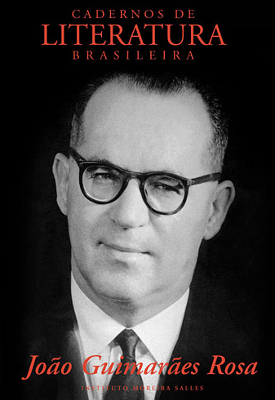Guimarães Rosa is one of the greatest writers in Brazilian literature and is certainly among the greatest writers in the Portuguese language. A name associated with Brazilian regionalist prose, he was like few others a universal author, although most of his stories are set in the sertão and the interior of Minas Gerais. Through the simple country man, Rosa addressed themes of universal dimension, such as good or evil, God and the devil, love, violence, death, betrayal, among other themes that afflict not only the man from the Minas Gerais hinterland, but also the urban man, wherever he may be you are.
Talking about Guimarães Rosa is talking about your Grande Sertão: Paths. Rosa's masterpiece was written in 1956 and initially would be a novel that would integrate the book Ballet, but the ideas gained so much strength and autonomy that the writer decided to turn them into a novel, romance that would definitely enter the history of Brazilian literature as one of its greatest achievements. Riobaldo is the protagonist-narrator who gives an account of his life to an interlocutor with whom he interacts throughout the narrative, but who never appears in the story. How, then, could a monologue be so interesting and reach extreme levels of beauty and poetry?
Guimaraes Rosa he was a master of words, he moved between prose and poetry like few others. He used elements never before used in Brazilian prose, elements such as metaphors, alliteration, onomatopoeia and rhythm. Rosa's creative force invented a new language, permeated by neologisms and linguistic borrowings, rescued disused terms and explored new syntactic structures to recreate the language of the simple man of the interior. For this and many other reasons, Grande Sertão: Paths it is one of those unforgettable books, which are part of the basic bibliography of anyone passionate about literature.
In order for you to know a little more about Guimarães Rosa's masterpiece, Brasil Escola has made an inventory of the best phrases and aphorisms in the book for you. Grande Sertão: Paths is a book to read with pencil and paper at hand, as it is practically impossible not to feel like jotting down its countless beautiful passages. We are sure that after this brief reading, you will feel like getting to know in depth Master Guimarães Rosa's greatest literary achievement. Good reading!
"The course of life wraps everything up, life is like that: it heats up and cools down, tightens and then loosens, calms down and then makes restless. What she wants from us is courage."
João Guimarães Rosa, in Grande Sertão: Veredas.
"I'm going far. If you've already seen this, you know: if you don't know, how will you know? These are things that don't fit in having an idea."
João Guimarães Rosa, in Grande Sertão: Veredas.
"There are times when I think we suddenly needed to wake up from some kind of charm."
João Guimarães Rosa, in Grande Sertão: Veredas
Do not stop now... There's more after the advertising ;)

Guimarães Rosa was born in Cordisburgo, Minas Gerais, on June 27, 1908. He died in Rio de Janeiro, aged 59, on November 19, 1967 **
"...I say. This life is full of hidden paths. If you know, you know; not knowing, you will not understand."
João Guimarães Rosa, in Grande Sertão: Veredas.
"I am is myself. I differ from all over the world... I almost do not know anything. But I suspect a lot. Granting you, I say: to think far ahead, I'm a master dog – you give me a slight idea in front of me, and I'll track this one deep in all the bushes, amen!."
João Guimarães Rosa, in Grande Sertão: Veredas.
"I, here, don't miss an opportunity for religion. I take advantage of them all. I drink water from all over the river... one just for me is not enough, maybe not enough for me."
João Guimarães Rosa, in Grande Sertão: Veredas.
"Aim, see: the most important and beautiful thing in the world is this: that people are not always the same, they are not finished yet – but that they are always changing. Tune it in or out of tune. Greater truth. That's what life taught me."
João Guimarães Rosa, in Grande Sertão: Veredas.
“Friend, for me, it's just that: he's the person we like to talk to, like or like, unarmed. That one takes pleasure in being close. Just this, almost; and all sacrifices. Or – friend – is that we are, but without needing to know why it is."
João Guimarães Rosa, in Grande Sertão: Veredas.
"Little is lived, and much is seen... – Another one can be us; but we cannot be another, nor is it convenient..."
João Guimarães Rosa, in Grande Sertão: Veredas.
"Life is ungrateful in the soft of itself; but it transfers hope even in the midst of the gall of despair. To what, this world is very mixed..."
João Guimarães Rosa, in Grande Sertão: Veredas.
"Sertão. You know, backlands is where people's thoughts are formed stronger than the power of the place. Living is very dangerous..."
João Guimarães Rosa, in Grande Sertão: Veredas.
"Teacher is not the one who always teaches, but the one who suddenly learns."
João Guimarães Rosa, in Grande Sertão: Veredas.
*This iimage illustrates the PDF version of the book. Available in: Stoa USP.br
**The image that illustrates the core of the article is on the cover of the journal “Cadernos de Literatura Brasileira”, by Instituto Moreira Salles.
By Luana Castro
Graduated in Letters
